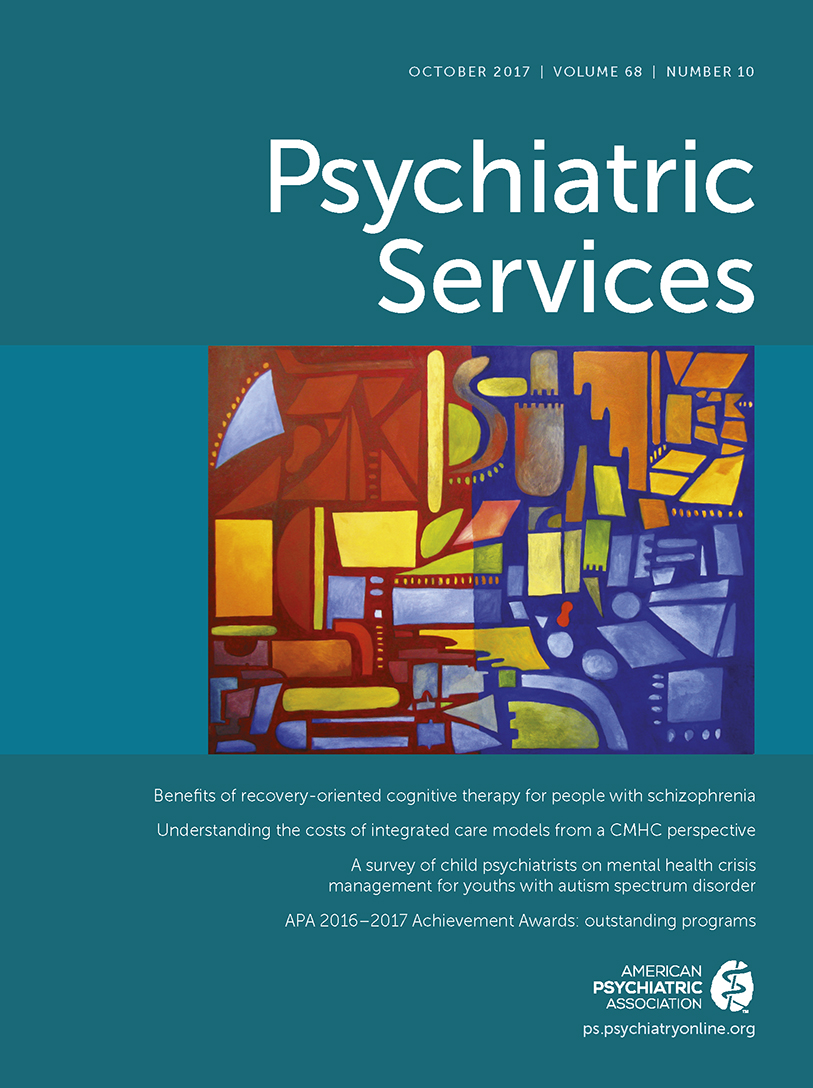Nurse Practitioner Independent Practice Authority and Mental Health Service Delivery in U.S. Community Health Centers
Abstract
Objective:
Little is known about how nurse practitioner independent practice authority (NP-IPA) influences patient care. This study examined the effect of NP-IPA on patterns of mental health–related visits provided by NPs in U.S. community health centers (CHCs).
Methods:
State NP regulatory information was linked to National Ambulatory Medical Care Survey data on NP- and physician-provided visits (N=61,457) in CHCs from 2006 through 2011. The proportion of NP-provided versus physician-provided mental health–related visits in states with NP-IPA was compared with the proportion in states without NP-IPA. The adjusted odds of mental health–related visits in CHCs provided by NPs in states with and without NP-IPA were compared by using multiple logistic regression models while accounting for the complex survey design.
Results:
Between 2006 and 2011, the odds of NP- versus physician-provided mental health–related visits in CHCs were more than two times greater in states with NP-IPA than in states with no NP-IPA (adjusted odds ratio [OR]= 2.43, 95% confidence interval [CI]=1.12–4.60). In contrast, no significant difference between states with and without NP-IPA was noted in non–mental health–related CHC visits provided by NPs. Among all mental health–related visits, the odds of visits in which psychotropic medications were prescribed by an NP were more than three times higher in states with NP-IPA than in those without NP-IPA (adjusted OR=3.14, CI=1.50–6.54).
Conclusions:
Compared with physicians, NPs provided proportionally more CHC mental health–related visits in states with NP-IPA than in states without NP-IPA.



